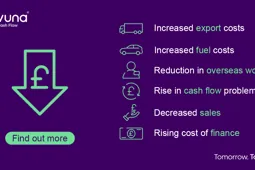How to create a budget for your small business
Friday 10th March 2023

Creating a budget is an important step in managing your finances and ensuring that your business is financially stable. A budget helps you to keep track of your income and expenses, and ensures that you have a clear understanding of your financial situation. In this blog, we'll walk you through the steps for creating a budget for your small business.
Step 1: Gather your financial data
The first step in creating a budget is to gather all of your financial data, including your income, expenses, and debts. This will give you a clear picture of your financial situation and help you to identify any areas where you may be overspending or underperforming. To gather this data, you'll need to review things like your bank statements, credit card statements, and any other financial documents that you have.
Step 2: Create a spreadsheet or use budgeting software
Once you have all of your financial data, you'll need to organise it in a way that makes it easy to track and manage. One way to do this is to create a spreadsheet using a program like Microsoft Excel or Google Sheets. Alternatively, you can use budgeting software that is specifically designed to help you create and manage a budget.
Step 3: Allocate your budget
Once you have your financial data organised, you'll need to allocate your budget in a way that aligns with your business goals. For example, if you're trying to grow your business, you may want to allocate more of your budget towards marketing and sales efforts. On the other hand, if you're trying to cut costs, you may want to focus on reducing expenses such as rent or supplies. It's also important to allocate some of your budget towards emergencies or unexpected expenses - which can arise at any time!
Step 4: Review your budget regularly
It's a good idea to review your budget at least once a month to ensure that you're on track and to make any necessary adjustments. This will help you to identify any problems early on and make course corrections before they become major issues. It's also a good idea to review your budget annually to see if there are any areas where you can improve or make changes.
Step 5: Make adjustments as needed
As your business grows and changes, you'll need to make adjustments to your budget to reflect these changes. For example, if you start to generate more revenue, you may need to increase your budget in certain areas to support this growth. On the other hand, if you experience a downturn in business, you may need to cut back on expenses in order to keep your budget balanced.
By regularly reviewing and updating your budget, you can ensure that it accurately reflects your current financial situation and helps you to achieve your business goals.
Creating a budget for your small business can seem intimidating at first, but it's an essential step in managing your finances and ensuring that your business is financially stable. By following these steps and regularly reviewing and adjusting your budget, you can gain a clear understanding of your financial situation and take control of your finances.



